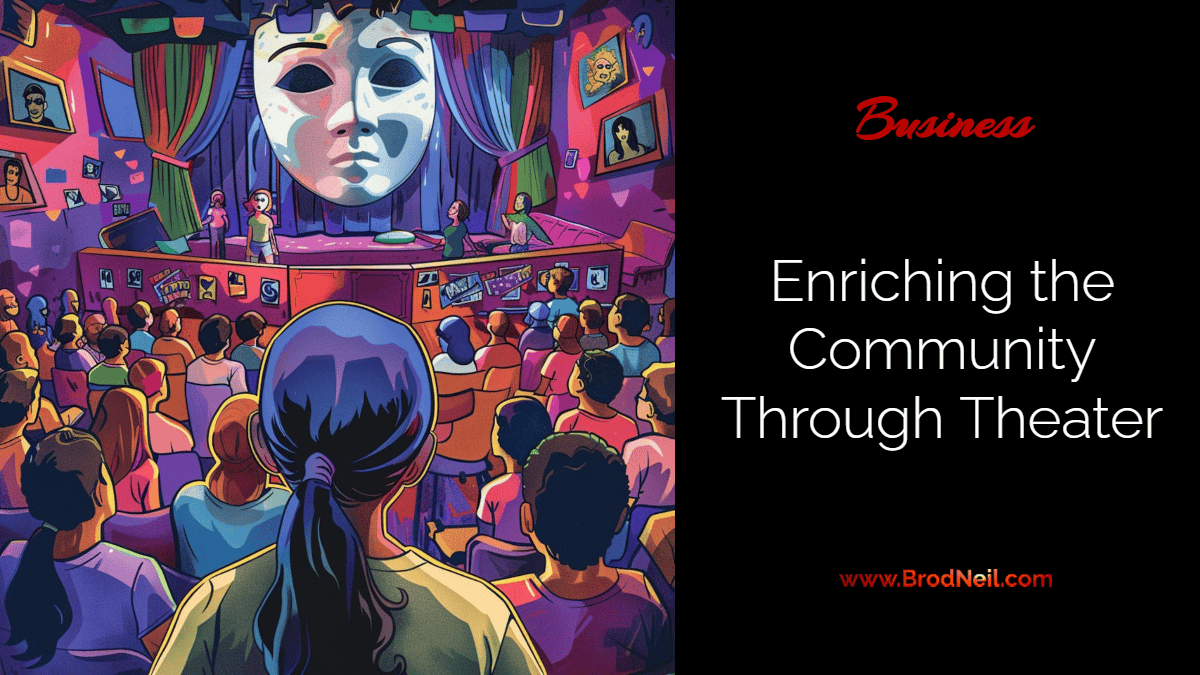Community theater often operates quietly yet significantly within towns and cities, serving as entertainment and as a powerful tool for community development and personal growth. Beyond the immediate joy of performance, community theater offers inclusivity, economic growth and cultural enrichment.
Cultural Enrichment and Education
Community theater brings the arts to the forefront of local culture, making theater accessible to those who might not otherwise experience it. By presenting a variety of plays and musicals—from classic Shakespeare to modern works—community theater exposes audiences to diverse stories and perspectives, allowing for a greater understanding of the human condition. For many smaller towns, the local theater is a primary source of cultural exposure and a valuable educational resource.
The educational benefits are not confined to the audience. Participants, from actors to stage crew, often engage in workshops and training sessions. Choosing the theater backdrops, painting sets, learning choreography and running stage lights are all opportunities to learn new skills and gain confidence.
Strengthening Community Ties
Community theater promotes social unity by allowing individuals from various backgrounds to share an experience. This gathering of diverse individuals helps strengthen the community, encouraging mutual appreciation. For many, the theater becomes a meeting ground, a place of shared interest and collective enjoyment.
Moreover, the collaborative nature of theater production grows strong relationships among cast and crew members. This camaraderie often extends beyond the theater, contributing to a network of support and friendship within the community.
Economic Impact
While often overlooked, the economic contribution of community theater is significant. Theater productions draw audiences that boost local business—from restaurants and parking facilities to hotels and retail shops. An active theater scene can be a cornerstone of local tourism, attracting visitors who are drawn not only to the performances but also to the cultural vibrancy of the area.
Additionally, theaters often employ local residents and may offer paid positions alongside volunteer opportunities. The economic activity generated by these roles, as well as by patrons of the arts, can be vital to the financial health of a community.
Personal Development and Inclusivity
Community theater offers a platform for personal growth and expression. Participants learn valuable life skills such as public speaking, self-confidence and leadership. For many, the theater is a safe space to explore personal identity and develop a sense of self. The inclusivity of community theater—open to all ages, backgrounds and skill levels—makes it a unique venue for personal development.
Healing and Therapy
The theater has therapeutic benefits both for those on stage and those in the audience. Engaging in theater can be a form of emotional release and a way to handle personal traumas in a controlled and supportive environment. For audience members, the themes and narratives explored in plays can provide insights into their own lives, promoting mental health and emotional well-being.
Community theater is more than just an entertainment venue; it is a necessary part of local culture and community. Through its inclusive and collaborative nature, community theater fosters personal growth and civic engagement and serves as a center for cultural enrichment and unity.

